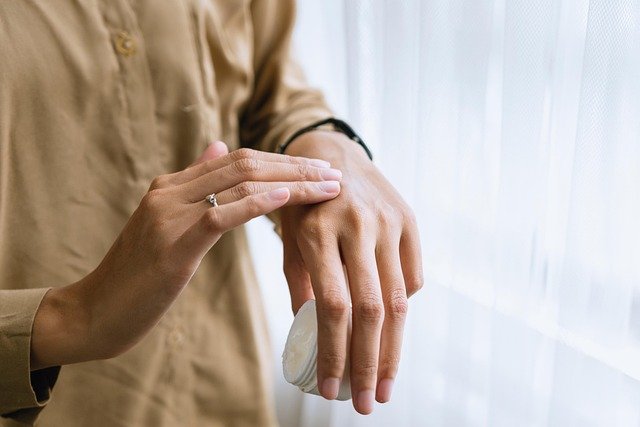Explore helpful tips on managing eye area concerns naturally
The delicate skin around your eyes often shows the first signs of fatigue, stress, and aging. Whether you're dealing with puffiness, dark circles, or fine lines, understanding how to care for this sensitive area can make a meaningful difference in your appearance and comfort. Natural approaches to eye care focus on gentle, sustainable habits that support skin health without harsh chemicals or invasive procedures. By incorporating thoughtful routines and lifestyle adjustments, you can address common eye area concerns while promoting overall wellness.

Gentle Routines for Eye Care
Establishing a consistent, gentle routine is essential for maintaining the health of the skin around your eyes. This area is significantly thinner than the rest of your face, making it more vulnerable to damage and irritation. Start by using a mild, fragrance-free cleanser specifically designed for sensitive skin. When removing makeup, avoid harsh rubbing or tugging. Instead, use a soft cotton pad soaked in micellar water or a gentle oil-based cleanser, pressing it against your closed eyelid for a few seconds before gently wiping away. Pat the area dry with a clean towel rather than rubbing. Consider incorporating a lightweight eye cream or serum into your morning and evening routine, applying it with your ring finger using gentle tapping motions to stimulate circulation without pulling the delicate skin.
Natural Solutions for Dark Circles
Dark circles under the eyes can result from various factors including genetics, thinning skin, visible blood vessels, and hyperpigmentation. Natural remedies can help minimize their appearance over time. Cold compresses made from chilled cucumber slices or cooled green tea bags can temporarily reduce puffiness and constrict blood vessels, making dark circles less noticeable. The caffeine in tea and the antioxidants in cucumber provide additional benefits. Some people find success with topical applications of vitamin C-rich ingredients like rosehip oil or diluted lemon juice, though these should be used cautiously and never applied to broken skin. Adequate sleep remains one of the most effective natural solutions, as poor sleep quality can worsen the appearance of dark circles by causing fluid retention and skin pallor.
Hydration Tips for Skin Comfort
Proper hydration plays a crucial role in maintaining the comfort and appearance of the eye area. Drinking sufficient water throughout the day helps maintain skin elasticity and prevents the sunken, tired look that dehydration can cause. Aim for at least eight glasses of water daily, adjusting based on your activity level and climate. Topical hydration is equally important. Look for eye products containing hyaluronic acid, which can hold up to 1,000 times its weight in water, helping to plump and smooth the skin. Glycerin and ceramides are other beneficial ingredients that help lock in moisture. Consider using a humidifier in your bedroom, especially during dry winter months, to prevent moisture loss while you sleep. Avoid excessive caffeine and alcohol consumption, as both can contribute to dehydration and exacerbate puffiness.
Lifestyle Changes for Healthier Eyes
Your daily habits significantly impact the appearance and health of your eye area. Getting seven to nine hours of quality sleep each night allows your body to repair and regenerate skin cells. Elevating your head slightly with an extra pillow can prevent fluid from pooling around your eyes overnight. Managing stress through meditation, yoga, or regular exercise helps reduce cortisol levels, which can contribute to skin inflammation and premature aging. Protect your eyes from sun damage by wearing UV-blocking sunglasses whenever you’re outdoors, as squinting and UV exposure accelerate the formation of fine lines and wrinkles. Reduce screen time when possible, and follow the 20-20-20 rule: every 20 minutes, look at something 20 feet away for 20 seconds to minimize eye strain and fatigue.
Practical Advice for Eye Area Concerns
Addressing specific eye area concerns requires a targeted approach based on your individual needs. For puffiness, try sleeping on your back to prevent fluid accumulation, and reduce sodium intake to minimize water retention. Gentle facial massage can promote lymphatic drainage, helping to reduce swelling. For fine lines and wrinkles, incorporate foods rich in omega-3 fatty acids, vitamins C and E, and antioxidants into your diet to support collagen production from within. Avoid smoking, which accelerates skin aging and damages collagen fibers. If you wear contact lenses, ensure they’re properly fitted and replace them as recommended, as ill-fitting lenses can cause irritation and rubbing. Always remove makeup before bed to prevent clogged pores and irritation. When trying new products or remedies, introduce them one at a time to identify any potential sensitivities or allergic reactions.
Conclusion
Caring for the delicate eye area naturally involves a combination of gentle skincare practices, proper hydration, and thoughtful lifestyle choices. While results may take time to become visible, consistent application of these natural approaches can lead to noticeable improvements in the appearance and comfort of your eye area. Remember that everyone’s skin is unique, and what works for one person may not work for another. Pay attention to how your skin responds to different treatments and adjust your routine accordingly. By prioritizing gentle care and addressing underlying factors like sleep quality, hydration, and nutrition, you can support the long-term health and appearance of this sensitive area without relying on harsh chemicals or invasive procedures.
This article is for informational purposes only and should not be considered medical advice. Please consult a qualified healthcare professional for personalized guidance and treatment.




